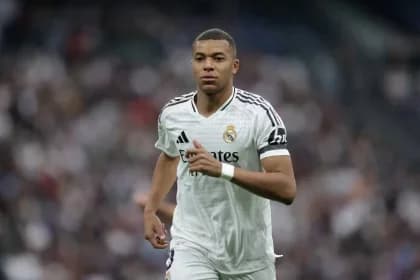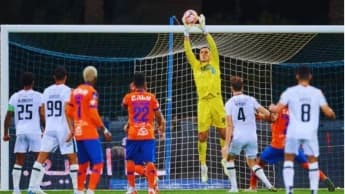Mbappé vs PSG: Legal Battle Over €55 Million Bonus

Kylian Mbappé's pursuit of a €55 million bonus from PSG ignites a fierce legal battle, highlighting the critical importance of written contracts and the evolving power dynamics between elite footballers and their clubs.
Kylian Mbappé, one of the most prominent stars in football, is again embroiled in a legal drama, this time over a €55 million bonus dispute with his previous club, Paris Saint-Germain. The French sensation, now shining in Real Madrid's colors, remains firm in his demand for the entire amount, while PSG is resolute in their intention to contest the decision that favored the player.
The French Football Federation (FFF) has recently made a ruling in favor of Kylian Mbappé by denying Paris Saint-Germain's appeal to withhold his bonus, pointing out the club's procedural failings. Despite facing this setback, PSG remains resolute and has chosen to take the dispute to the regular judicial courts in an effort to overturn the FFF's ruling. Their case hinges on an alleged verbal agreement with Mbappé, which they argue nullifies the bonus payment.
PSG's legal strategy relies on the claim that Mbappé verbally consented to forgo the renewal clause in his contract in exchange for specific assurances, including the disputed bonus. Although the club claims this agreement is substantiated by witnesses, the lack of formal documentation has considerably undermined their case. The FFF's decision to support Mbappé highlights the critical role of written contracts in settling such conflicts.
For Mbappé, the situation is straightforward. The €55 million bonus was outlined in his contract, and he is resolute in claiming what he believes is justly his. His move to Real Madrid on a free transfer has not weakened his determination, as he regards the payment as a matter of principle rather than a negotiation.
A possible agreement, like a reduction of the bonus, appears improbable due to Mbappé's resolute position. His stance underscores the wider topic of player rights and the power relationships between athletes and clubs in contemporary football.
This protracted legal conflict affects PSG not only financially but also calls into question their contractual practices. The club's dependence on informal agreements and procedural errors may have lasting ramifications, potentially harming their reputation in negotiations with players.






